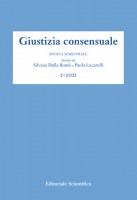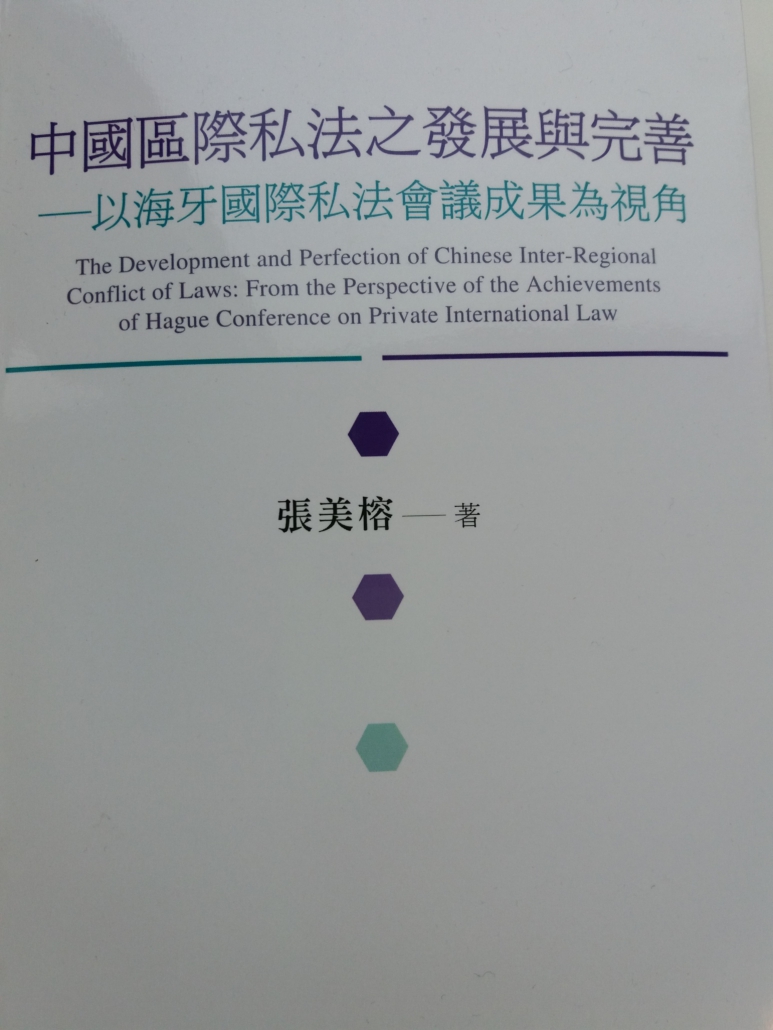Mbatha v. Cutting: Implications for Litigants of Indian Origin
Guest Post by Chytanya S. Agarwal*
I. Introduction
Rising cross-border migration of people and concomitant increase in lawsuits relating to matrimonial disputes between couples brings to the forefront the issue of conflict of jurisdictional laws (219th Law Commission Report, ¶1.1-¶1.2). Mbatha v. Cutting is one such recent case that grapples with conflict of laws pertaining to divorce and division of matrimonial property when the spouses are domiciled in separate jurisdictions. In this case, the Georgian Court of Appeal dealt with competing claims from a couple who married in New York and had their matrimonial domicile in South Africa. The wife, domiciled in Georgia, USA, argued for the application of the matrimonial property regime of South Africa – their only (though temporary) common matrimonial domicile. In determining the applicable law, the Court upheld the traditional approach, which favours lex situs for real property and lex domicilii for personal property.
In this article, I contextualise Mbatha in the context of Indian litigants, particularly foreign-domiciled Non-Resident Indians (‘NRIs’) married under Indian personal laws and having their property located both within India and in foreign territory. Firstly, I analyse Mbatha by comparing it with the prevalent approaches in private international law. Secondly, I examine the Indian jurisprudence on the applicability of foreign judgements concerning matrimonial disputes. Thirdly, I submit that Mbatha complies with the Indian lex situs rule insofar as real property is concerned. However, by determining its subject-matter jurisdiction by solely considering Georgian law, Mbatha sets itself on a collision course with the Indian approach on the subject-matter jurisdiction of foreign courts. Lastly, I analyse the implications of this uncertainty regarding enforceability of foreign judgements on matrimonial property. In conclusion, I propose a solution that draws on public international law to resolve the challenge presented by conflicting rules on choice of law.
II. Traditional Approach vs. Modern Approaches to Conflict of Laws
The primary source of private international law are municipal laws of nations. Their divergence in the face of potential applicability is the root cause of conflict of laws. In this section, I examine the approaches to conflict of laws from the perspective of mutability i.e., change in applicable personal laws of spouses during their marriage. It has three main approaches under private international law – the doctrines of immutability, mutability, and the partial mutability. The lex situs approach upheld in Mbatha falls under the “partial mutability” rule.
Under the “doctrine of immutability”, the personal law during marriage governs the property relations of spouses forever (Schuz, p.12). Once determined, this law stands ‘immutable’/unalterable. Strict immutability approach is favoured for predictability of applicable laws (p.45). It is also supported on the ground of legitimate expectations of the parties. In short, the parties can expect the personal law of their marriage to govern their relations unless they determine their choice of law through a separate agreement (p.29-30).
In “doctrine of mutability,” the applicable law never remains fixed. It can change depending on changes in forum, changes in religion, nationality, domicile, etc. For instance, under the lex fori approach followed in American states, the courts partition the entire matrimonial property by applying the law of the forum, regardless of where and when the said property was acquired (Wasserman, p.23). This approach is justified on the grounds of state interest because the greatest interest of the forum state in matrimonial cases is to ensure the application of its laws (Schuz, p.38). However, this approach poses the risk of “forum shopping” or the practice of filing claims in jurisdictions where lex fori favours the petitioner’s case.
The third approach is the “partial mutability” approach which finds an echo in Mbatha. As mentioned, the traditional approach in Mbatha favoured lex situs (i.e., the law of the jurisdiction where the real property is located) and lex domicilii (i.e., the law of the owner’s domicile at the time the personal property was acquired). In the doctrine of “partial mutability”, a change in matrimonial domicile would trigger a change in the governing laws without having any retroactive effect on already acquired property (Schuz, p.12). For instance, if a married couple buys property in Country X, then the laws of country X alone would govern this property. However, this does not prevent them from applying the laws of Country Y to a property situated in Country Y. Thus, the applicable matrimonial property law changes depending upon the location in which the spouses buy the matrimonial property without prejudicing vested rights. Its underlying rationale is protecting both state interests and legitimate expectations of the parties. This is because the state where the relevant property is situated has the greatest interest in ensuring that it is governed by its own laws. Additionally, parties have the reasonable expectation that the law governing the property should always be that at the time of the acquisition of that asset (Schuz, p.32).
III. Indian Jurisprudence on Foreign Judgements Concerning Personal Laws
While private international law has undeveloped jurisprudence in India, it has a growing trend due to the import of foreign laws and foreign judgements by NRIs who have emigrated from India (219th Law Commission Report, ¶2.1-¶2.2). In this section, I analyse the Indian judgements dealing under three issues concerning foreign verdicts on matrimonial relations recognised by the 65th Law Commission Report (¶3.2). These issues, equally pertinent in the context of matrimonial property relations, are (i) grounds for jurisdiction, (ii) choice of law, and (iii) law on recognition.
1. Jurisdiction
Indian law has generally opposed the application of foreign judgements on the ground that the foreign forum did not possess sufficient jurisdiction under the personal law governing the parties. A plain reading of the text of the Indian Succession Act and the Hindu Succession Act shows that they only govern the devolution of immovable property situated in India irrespective of the domicile of the person who owned the property. The Acts extend only to the Indian territory and do not have extra-territorial application. As per the Code of Civil Procedure (‘CPC’), any suit for the partition of immovable property must be filed in the court within whose local jurisdiction the property is located.
Case laws have also supported this position consistently. In Duggamma v. Ganesha Keshayya (¶5-¶7, ¶14), it was held that the decision of a foreign court concerning title to Indian property would be devoid of legal effects. Harmindar Singh v. Balbir Singh held that disputes concerning any immovable property have to be decided not just by the laws of the country where the land is situated, “but also by the courts of that country.” Even if the parties had submitted to the jurisdiction of the foreign court, the foreign verdict is enforceable only to the extent it applies to property situated outside India. Conversely, Indian courts have upheld the disposition of overseas family property by foreign courts. Even in cases concerning other matrimonial disputes such as divorce, the Supreme court has held that the forum must have jurisdiction as per the law under which the parties married. For instance, foreign courts have been barred from annulling marriages between Indians. To summarise, Indian courts have generally disfavoured the adjudication of matrimonial disputes by foreign courts on the ground of lack of jurisdiction.
2. Application of Indian Law
In the absence of legislative guidance, this sphere of private international law is heavily reliant on case laws (219th Law Commission Report, ¶3.2). A perusal of judgements (see here and here) shows that real property located in India can be governed only by Indian law (i.e., lex situs). At the same time, Indian courts have ruled that Indian law is inapplicable in foreign jurisdictions. In Ratanshaw v. Dhanjibhai, the Bombay High court upheld the English rule of lex situs for the succession of property situated in India. At the same time, Indian courts recognising lex situs have respected foreign judgements concerning overseas property, and have observed that foreign forums should also reciprocate by recognising Indian judgements concerning immovable property in India. In Y. Narasimha Rao v. Y. Venkata Lakshmi, the Supreme Court ruled that per Section 13(c) of the CPC, even if the parties submit to the jurisdiction of the foreign forum, the only law applicable in matrimonial disputes is the one under which the parties married. However, in Nachiappa Chettiar v. Muthukaruppan Chettiar, the Indian law was held inapplicable in the case of properties situated outside India. Per Nachiappa Chettiar, the family property cannot be deemed partible under the Hindu Succession Act since it was located outside the jurisdiction of Indian courts. In Dhanalakshmi v. Gonzaga (¶34-¶43), the Hindu joint family system was held inapplicable in Pondicherry due to the invalidity of the Hindu Succession Act’s extraterritorial application. So, Indian courts have also respected foreign lex situs with respect to foreign property.
3. Recognition: Other preconditions
In addition to satisfying the requirements of jurisdiction and lex situs, there also exist procedural safeguards under CPC that must be satisfied for the foreign verdict to have a conclusive effect. Respect for principles of natural justice is one such prerequisite, entailing that judgements passed by forum non-conveniens are unenforceable in India. Additionally, fraud by one of the parties can also be a vitiating factor. For instance, in Satya, the husband “successfully tricked” a Nevada court to grant a divorce decree on the ground that hehad obtained the domicile of Nevada due to residence of 6 months. Here, the Chandrachud, J. held that the husband had no intention of permanently residing in Nevada and, this, the foreign verdict was unenforceable due to fraud. The need for procedural safeguards for the protection of the weaker party was also emphasised in Neeraja Saraph v. Jayant V. Saraph.
IV. Mbatha’s Implications on NRIs
The Mbatha approach of lex situs is compatible with Indian law. However, I argue that by determining its overall jurisdiction based on the domicile of one of the spouses,[1] Mbatha erroneously conflated the jurisdiction to determine divorce with the jurisdiction to determine the partition of matrimonial property. As per Georgian law, the court had both the subject-matter jurisdiction and personal jurisdiction to decide the divorce petition since one of the spouses had resided in Georgia for more than 6 months.[2] However, the court cited no authority regarding the validity of its jurisdiction to adjudicate on the division of overseas matrimonial property. The effect of Mbatha is that the court would apply the domestic law of the place where the property is situated, even if such a place is beyond the court’s local limits. For example, the Court in Georgia may apply the laws of a foreign jurisdiction to partition the foreign matrimonial property. This principle, called renvoi in private international law, has limited application in the Indian context (the only case where it was invoked yet not applied is Jose Paul Coutinho v. Maria Luiza Valentina Pereira).
Additionally, the Court determined its subject-matter jurisdiction based on Georgian law. However, as mentioned earlier, the forum should have competent jurisdiction as per the law governing the parties. A foreign forum applying Indian law on Indian property lacks the jurisdiction to do so as per Indian law. Hypothetically, if a Georgian court were to apply the Indian Succession Act to properties situated in India, it lacks the jurisdiction to do so since neither the Act nor CPC confers any jurisdiction on foreign forums to partition Indian property. However, Mbatha nevertheless compels it to apply foreign law even if the foreign law does not grant it requisite jurisdiction.
Another issue is created by the absence of any matrimonial property regime in Indian personal laws. This might lead to rejection of Indian law in the foreign forum since it might consider the lack of rights in the matrimonial property as opposed to their public policy since it is discriminatory towards women. By combining renvoi with this public policy argument, courts can effectively nullify Indian lex situs. Such instances have happened in Israel, where courts have abstained from applying Islamic law on couples migrating from Islamic countries on the ground that the Islamic matrimonial property regime violates gender equality and is thus opposed to Israeli public policy.[3]
V. A Public International Law Solution to Conflict of Laws?
As explained, while Mbatha’s lex situs rule protects state interests, it has the potential of frustrating parties’ legitimate expectations by subjecting NRIs to matrimonial property regimes of foreign forums, even when Indian personal laws do not contain the concept of matrimonial property. In this regard, public international law gives the solution of making the rules on choice of laws uniform through an overarching treaty like the Hague Conventions (see here and here). The enactment of a composite legislation on private international law along the lines of the 1978 Hague Convention on Matrimonial property regimes to prevent the misapplication of foreign law (219th Law Commission Report, ¶5.2) can go a long way in preventing future conflicts between matrimonial legal systems. This harmonising principles on choice of laws is also more feasible, and has less costs than the alternative of uniformising matrimonial property regimes altogether since such family law regimes are intrinsic to the cultural backdrop of specific legal systems. As shown by Mills (pp.7-10), private disputes are becoming increasingly enmeshed with public international law considerations. The adoption of such treaty is also consistent with the growing view on the intersection of public and private international law to resolve pitfalls in existing legal systems (Maier, pp.303-316).
*Chytanya S. Agarwal is a third-year B.A., LL.B. (Hons.) student at the National Law School of India University (NLSIU), Bangalore, and a Blog Editor at the Indian Journal of Law and Technology (IJLT). The author can be reached at chytanya.agarwal@nls.ac.in.
[1] Restatement of the Law, Conflict of Laws (2nd), ss70-72.
[3] Also see Nafisi v Nafisi ACH (1996) PD 50(3) 573; Azugi v Azugi (1979) (III) 33 PD 1. Here, despite the “doctrine of immutability” endorsed by Israeli law, the court applied lex fori on an Iranian couple on the grounds, inter alia, of public policy and gender parity.

 The fourth issue of RabelsZ 2022 has just been released. It contains the following articles:
The fourth issue of RabelsZ 2022 has just been released. It contains the following articles: The second issue of 2021 of
The second issue of 2021 of 